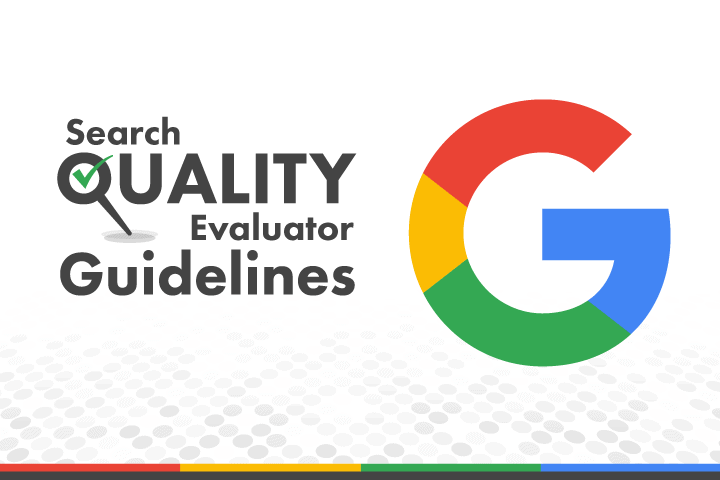The Importance of Pillar Pages and Topic Clusters for SEO
Pillar pages and topic clusters have been the next big thing in Organic Search for quite a while. Topic clusters, centred around a pillar page, offer a range of benefits for users, websites and search engines. We’ve covered what pillar pages and topic clusters (sometimes called content clusters) are on our main page, so in this guide, we’re going to focus on why you should use them as part of your content marketing strategy and why search engines value them.
In this video, we’ve explained why topic clusters are vital for SEO, and how you can start creating them. We recommend watching it, and then coming back to this page to learn even more!
The Benefits of Pillar Pages & Topic Clusters
In short, the main benefit of topic clusters and pillar pages is that they represent a fantastic way to grow your Organic Search traffic in a sustainable, reliable and long-term way by creating quality content around a core topic that matches a user’s search intent. You give yourself the best chance of obtaining high search rankings for the broadest range of potential queries, even those low search volume but super-relevant long-tail keywords.
Secondly, as well as attracting new, relevant users, you also build excellent brand authority, engagement and loyalty from existing customers. Topic clusters are a fantastic tactic to use as part of your search engine optimisation efforts, as they group pieces of relevant content together, allowing search engines to easily find them. As an added benefit, adopting a topic cluster content strategy will naturally improve your internal linking. All of these things add up to more traffic and more conversions.

Why Do Topic Clusters Work?
Modern search engine algorithms are complex and evolving technologies. Gone are the days of writing content around a given keyword and ranking accordingly – much to the annoyance of some SEOs!
Since their inception, search engines have been about providing value and a positive experience for their users; it’s at the core of every decision. The content elements of Google’s Webmaster Guidelines, which haven’t changed much over the years, reflect this:
- Make pages primarily for users, not for search engines.
- Don’t deceive your users.
- Avoid tricks intended to improve search engine rankings. A good rule of thumb is whether you’d feel comfortable explaining what you’ve done to a website that competes with you, or to a Google employee. Another useful test is to ask, “Does this help my users? Would I do this if search engines didn’t exist?”
- Think about what makes your website unique, valuable, or engaging. Make your website stand out from others in your field.

What does this mean and how do topic clusters fit into it? The short answer is that topic clusters provide value to users as well as building topical authority, and therefore Google tends to rank them highly. But to understand this further, we need to understand two related concepts.
E.E.A.T & YMYL
There are two core concepts that lie at the heart of Google’s algorithm when it comes to content, and these are E.E.A.T and YMYL. They stand for:
Experience. Expertise. Authoritativeness. Trustworthiness.
Your Money or Your Life.
We’ll deal with E.E.A.T first. This is part of Google’s Search Quality Rater Guidelines, the genuine handbook that Google uses to determine the quality of search results. While E.E.A.T is not a specific ranking factor and has no quantifiable value, Google places emphasis on websites that strongly demonstrate these ideals. Let’s explore these:
- Experience: Does the author or website have demonstrable, first-hand experience with the subject matter? Are they known within this niche? This is important as people with experience are able to provide valuable and authentic insights and advice.An example could be a well-known fitness influencer creating content that covers various exercise routines.
- Expertise: Related to, but not the same as Experience, does the author or website have the expertise, knowledge or qualifications in this subject area to deliver reliable and accurate information?Expertise and Experience differ in some crucial ways. Let’s use an example related to skin care. A dermatologist will be able to give you reliable and accurate information about your skin or a given product, and they most definitely demonstrate expertise. They can tell you what it does and how it works etc.However, a beauty blogger who has first-hand experience using a specific product has the experience of doing so. They can tell you how it feels, what it smells like, and how it worked for them.Combining the two gives users the best possible information about a given subject.
- Authoritativeness: Again, there’s some overlap here with Expertise but Authoritativeness refers to your site’s reputation among experts and those within your field, as well as that of the authors. Are they considered to be thought leaders? Does your site have a reputation for accurate, reliable content?For example, an article about SEO on Search Engine Journal is considered authoritative because SEJ is a famous publisher of SEO news and advice, and their authors are well-known SEO experts.
- Trustworthiness: Arguably the most important element, can your site be trusted? Are you clear about your authors? Do you make it clear when content is sponsored? Is the content factually accurate? Is it reliably sourced with links to relevant, trusted sites? Is your site secure? Do you have any scam ads or spam comments?
All of these things combine to build trust in the eyes of search engines, and therefore users. When combined with YMYL content, as we’ll see they can be incredibly important for a site.

Your Money or Your Life content is that which were it to give incorrect or incomplete advice, could cause serious harm to a reader or readers’ health, safety, finances or wellbeing. Examples could include financial news, health advice or important current events. E.E.A.T was originally only applied to YMYL content. For example, the standards applied were much higher for a piece of content about an ongoing serious weather event, than they were for a review of the latest summer blockbuster. More recently though, Google has made it clear that it can apply to an entire site.
As you may have gathered, creating high-quality, reliable and trustworthy content is vital. Doing so helps position you as an expert on a given topic, and topic clusters are one of the best ways to implement this. The creation of a strong, authoritative pillar page gives you space to cover the subject in depth, while interlinked and easily navigable cluster pages allow you to delve deeper into niche subjects. In turn, this will allow you to target lower volume, higher relevance long-tail keywords.
Finally, the structure of internal links allows both users and search engines to understand how your content interrelates. Many organisations will be experts in several areas, and creating topic clusters allows them to easily present information in a logical way. For example, a digital marketing agency may be experts in SEO, PPC, Google Analytics, UX and more.

In previous years, all the content may just have been published on a blog, perhaps with categories, but ultimately leaving the user to trawl through it. Instead, a hierarchy like the one below makes it much more navigable and makes the internal links logical.
For more information about topic clusters, including how to create them and the strategy behind it explore our other cluster pages below.